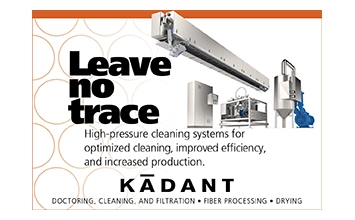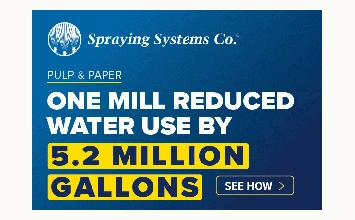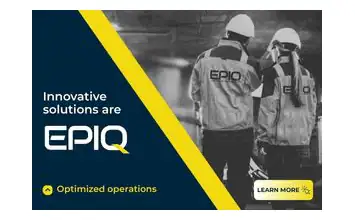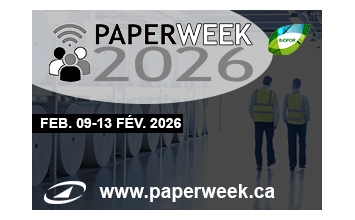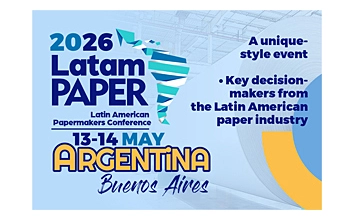Over 140 countries have adopted net-zero pledges by 2050 (including the US, although they have recently withdrawn from the Paris agreement for the second time).
Canada has pledged to reduce its GHG emissions by 40–45% below 2005 levels by 2030, on the way to reaching net-zero by 2050. Some of this will need to come from decarbonization of industry.
The pulp and paper industry has the opportunity to become a major player in decarbonization. In recent decades, the Canadian pulp and paper industry has significantly reduced its GHG emissions (55% from 1990 to 2023), mostly by improving energy efficiency, enhancing heat recovery and fuel switching from fossil fuels to biofuels it has easy access to, such as bark, branches and sawdust. However, there is a further opportunity for “negative emissions”, by capturing the biogenic CO2 produced by the industry, especially in kraft pulp mills, and permanently remove it from the atmosphere. This is known as BECCS (bioenergy with carbon capture and storage). The forest products sector has an important role to play in BECCS implementation, since this is not an opportunity that other large industries, such as cement and steel production, can access as easily. Currently, carbon capture from recovery boilers is technically feasible but not economically viable at a small scale unless there is a credit for carbon dioxide removal (CDR) or a market to sell the captured CO2. These markets are still in their infancy, but are expected to grow, driving net-zero efforts.
The most mature carbon capture technology involves capturing CO2 gas in an aqueous solution of an amine such as monoethanolamine, which reacts with the CO2. The amine solution is then heated and decompressed to release the CO2, which requires a significant amount of energy. The amines can degrade over time and have to be replenished.
CO280
One Canadian company based in Vancouver is at the forefront of exploring BECCS opportunities in the pulp and paper industry. CO280, a project developer founded in 2021, gets its name from the 280 ppm of CO2 that was in the atmosphere prior to the industrial revolution (today it’s at 420 ppm). According to CO280,
“Monetizing biogenic CO2 from stack emissions is a $30 billion/yr opportunity to transform the North American pulp and paper by diversifying revenue, doubling mill EBITDA, and decarbonizing operations.”
CO280 is currently exploring 14 projects at various stages. It has a pilot plant installed and fully operational since the third quarter of 2024 at an undisclosed mill on the US Gulf Coast, in partnership with SLB Capturi, which has three other carbon capture projects in Europe. Its most advanced commercial project is to capture 800,000 tpy of CO2 from the recovery boiler at a mill in Louisiana and store it in the underlying saline aquifer that is present in much of the southeastern US. The proposed project would cost $600 million. The US government’s 45Q tax credit will be used to guarantee sales of CDR credits for 12 years. The final investment decision will be made in 2026.

Svante
Another Canadian company, based in Burnaby, BC, Svante Technologies, has been working since its founding in 2007 to advance a carbon capture technology that promises to be lower in operating and capital cost than amine capture. Svante has five pilot plants, and recently announced a CCS project at Domtar’s Ashdown pulp mill in Arkansas with a potential capacity of 1.5 million tonnes of CO2. The project has been selected for a grant by the US Department of Energy’s (DOE), which will fund a preliminary engineering study for carbon capture from the mill’s recovery boiler flue gas. Svante's technology adsorbs the CO2 in a modular rotating filter assembly loaded with a solid sorbent based on metal–organic framework (MOF) nanoparticles. The CO2 is then desorbed from the filters by raising the temperature. Compared to the amine technology, the Svante process uses a less hazardous adsorbent and has lower energy and capital costs.

Mantel
Finally, Mantel, a carbon capture company that was spun off from the Massachusetts Institute of Technology in 2022, captures CO2 at high temperature using molten borate salts. The borates rapidly absorb CO2 from flue gas at up to 600 °C, so the capture system can be integrated into a boiler. The CO2 is desorbed by heating the borates up to 800 °C, and the extra heat is recovered. The process has high thermal efficiency because there is no need to cool the flue gas before adsorption. Unlike both amines and MOFs, the molten borates remain very stable. Testing at the bench scale showed near-perfect CO2 adsorption–desorption performance for hundreds of cycles.
Mantel is installing a pilot demonstration plant at the Kruger Wayagamack mill in Trois-Rivières, QC that will start up later in 2025. The project received government incentives from both Canada and Quebec. Captured CO2 at the pilot plant will displace purchased CO2 that is used for pH control on the mill’s paper machine.

It’s an exciting time for carbon capture technologies around the world, and these pilot, demonstration and commercial projects in the pulp and paper industry will be closely watched by industry leaders that want to get into the business of BECCS.
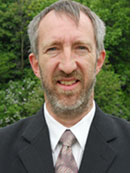 Martin Fairbank, Ph.D. Martin Fairbank has worked in the forest products industry for over 35 years, including many years for a pulp and paper producer and two years with Natural Resources Canada. With a Ph.D. in chemistry and experience in process improvement, product development, energy management and lean manufacturing, Martin currently works as an independent consultant, based in Montreal. He has also published Resolute Roots, a history of Resolute Forest Products and its predecessors over 200 years.
Martin Fairbank, Ph.D. Martin Fairbank has worked in the forest products industry for over 35 years, including many years for a pulp and paper producer and two years with Natural Resources Canada. With a Ph.D. in chemistry and experience in process improvement, product development, energy management and lean manufacturing, Martin currently works as an independent consultant, based in Montreal. He has also published Resolute Roots, a history of Resolute Forest Products and its predecessors over 200 years.
Martin Fairbank Consulting
Industry Experience
- Pulp and Paper Technology
- Biorefinery Development
- Government Subsidy Programs
Services
- Carbon Footprint Analysis
- Technical Writing
- Scientific Writing












